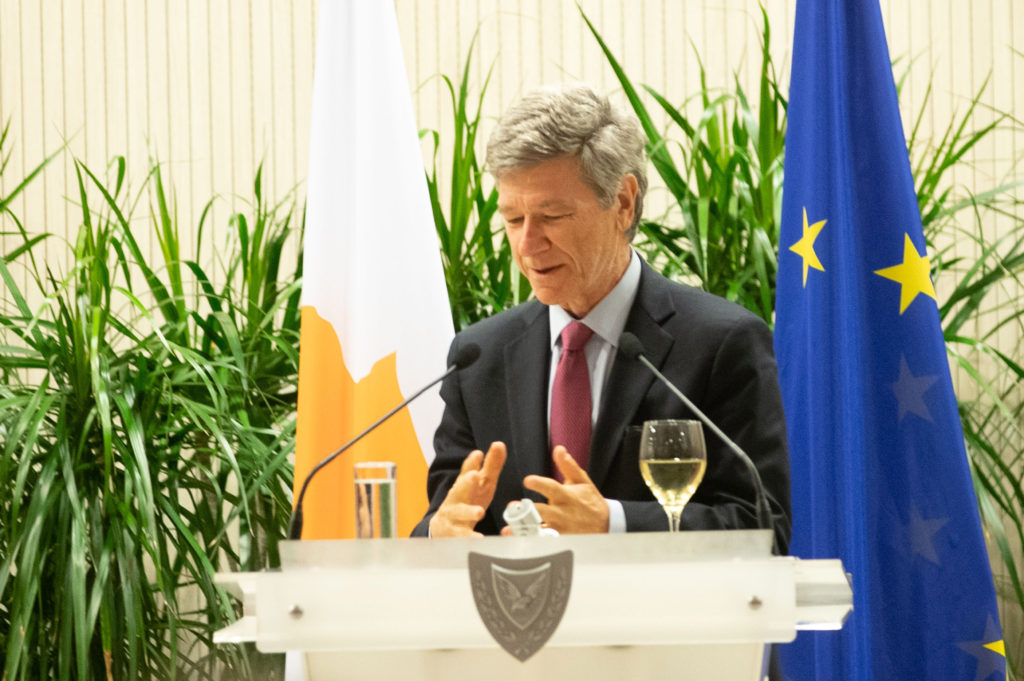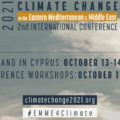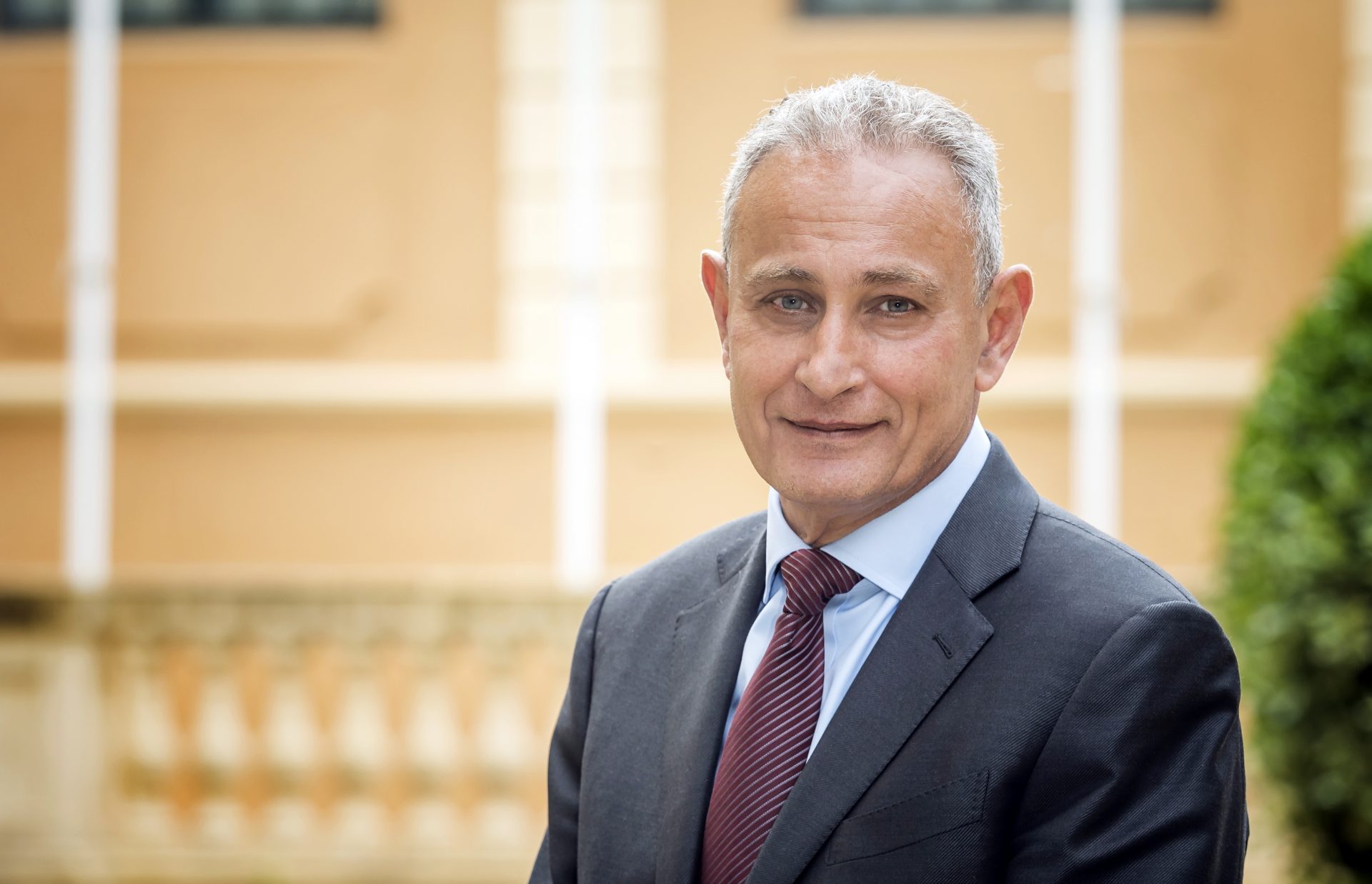The basic message of the 2nd international conference on climate crisis that took place in Cyprus last week is clear: The region of the Eastern Mediterranean and Middle East (EMME) needs to work together on three great themes, Professor Jeffrey Sachs told the Cyprus News Agency.
Professor Sachs, Director of the Center for Sustainable Development at Columbia University who was among the keynote speakers of the conference, organized by the Cyprus government and the Cyprus Institute in the framework of Cyprus’ initiative to combat the climate crisis in the EMME region , explained how these three themes are important in the path to manage the impact of the crisis.
“The first is a new energy system based on zero-carbon energy sources, mainly solar power and wind power. The second is climate adaptation, most importantly to protect the region from water stress in agriculture and urban areas. The third is economic competitiveness in a new green and digital global economy. Competitiveness requires a well-educated region that is oriented towards innovation and regional and global markets. It is now the job of the governments of the region to develop and implement these strategies”, Professor Sachs said.
He also noted that an important next step will be a meeting of ministers from the EMME region early in 2022 who will draft the policies and strategies based on the scientific findings of the conference.
CNA asked Professor Sachs how difficult the situation is and how difficult it is to find a common ground, given that the countries of the region have different characteristics and particularities or are torn by wars and conflicts.
“The diversity of the region can be a strength, as different countries add different parts to the regional solution. Also, since the region has different forms of zero-carbon energy, it makes sense to connect the region in an integrated power grid and energy system, and to connect the EMME, European Union, and North Africa into an expanding green energy system”, he said.
According to Professor Sachs there are many traditional divisions in the region that will pose obstacles, yet sustainable development offers a shared goal that can enable countries to look beyond their traditional divisions in order to create broader regional cooperation, peace, and prosperity.
Replying to a question on future crises like COVID and the link with climate crisis, he said that the sad truth is that there will likely be more emerging diseases on the way.
“We have already had several such epidemics in the 21st century: SARS, H1N1, MERS, Nipah, Covid-19, and others. These emerging diseases are spurred, at least in part, by climate change and human encroachments on nature. The world was not properly prepared for Covid-19, and the response has been poor in many ways, with far too many lives lost, and far too little systematic control and fairness in access to vaccines and other needs”, the Professor said.
He also said that he is currently chairing a commission for the Lancet medical journal explaining that this Lancet COVID-19 Commission will report in mid-2022 on how best to reduce the dangers of future emerging diseases through improved systems of global cooperation and improved surveillance and preparedness measures.



